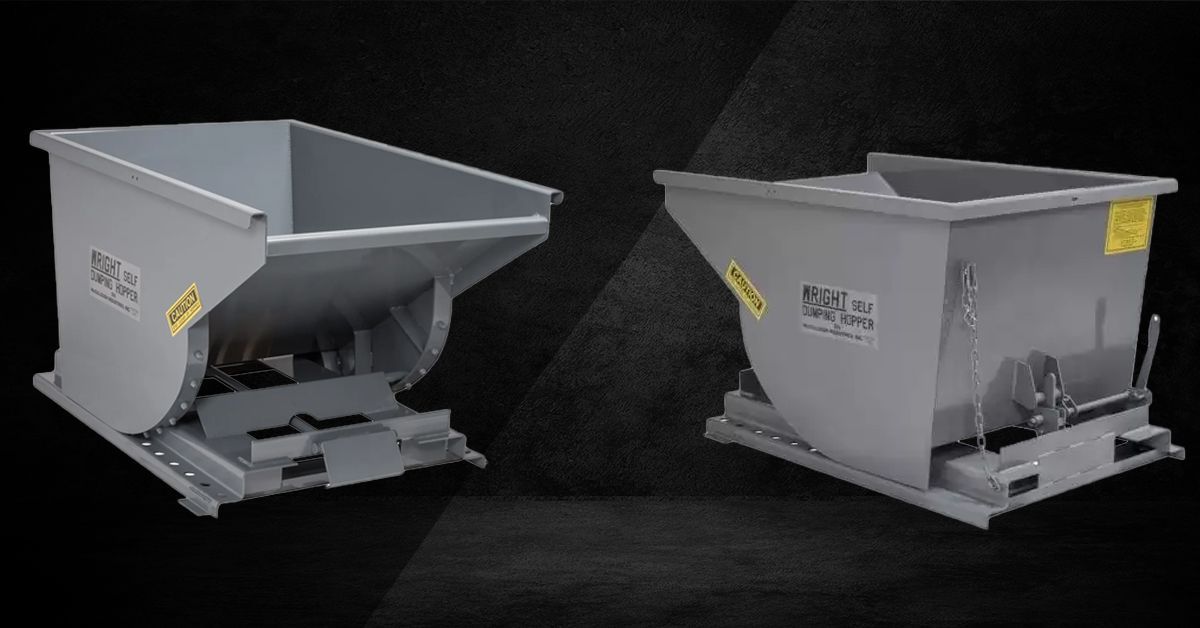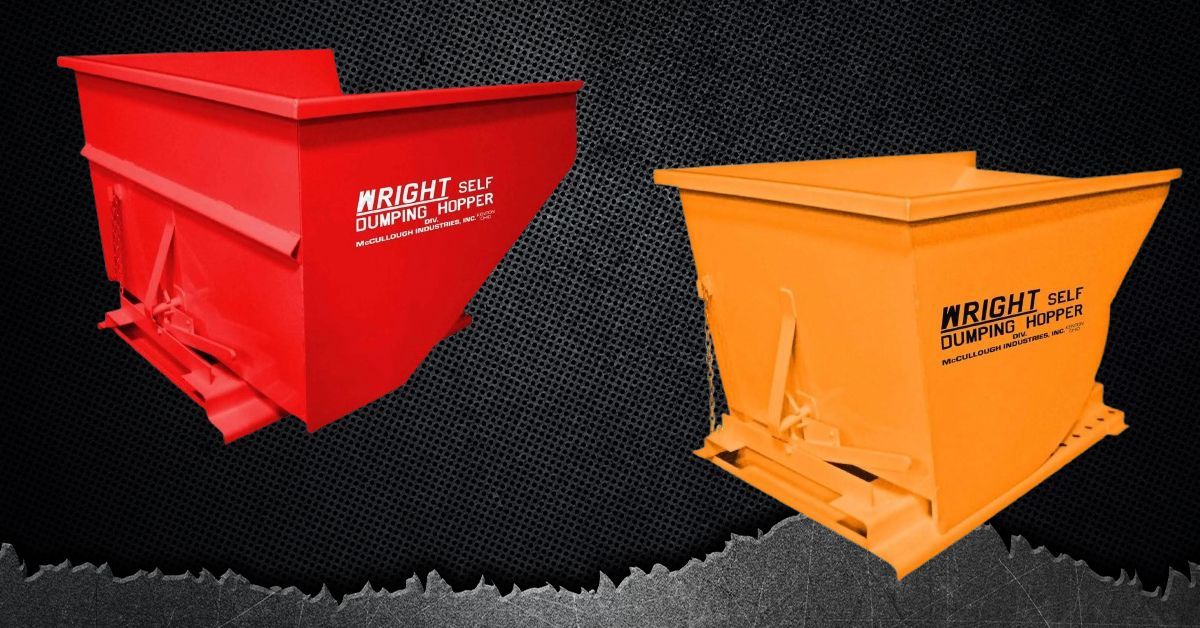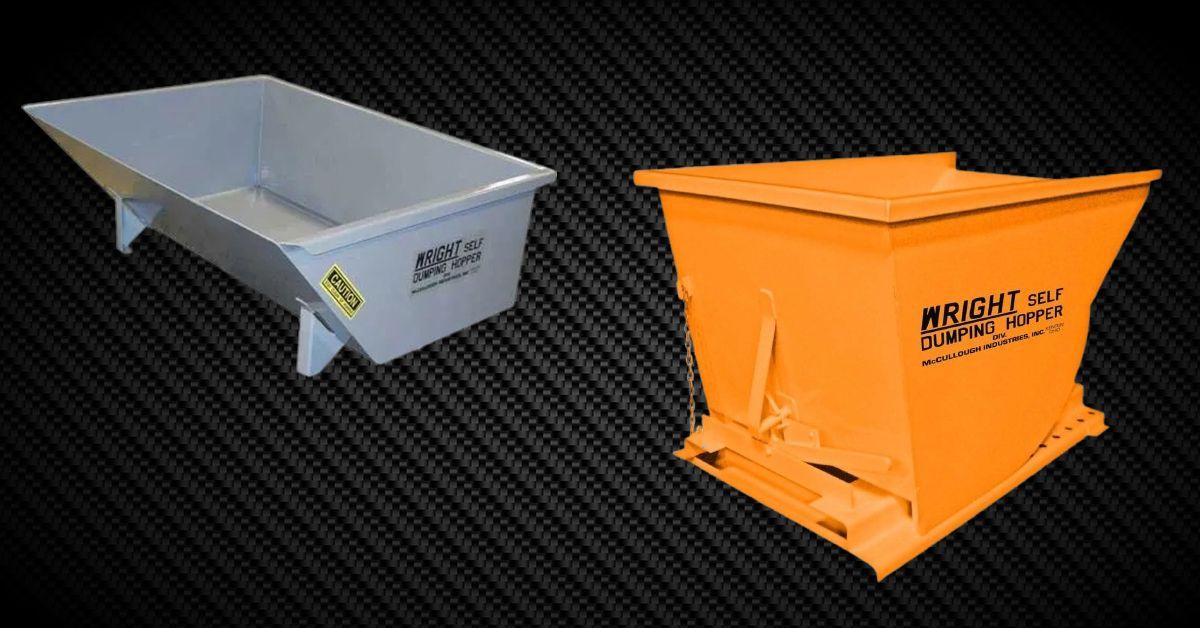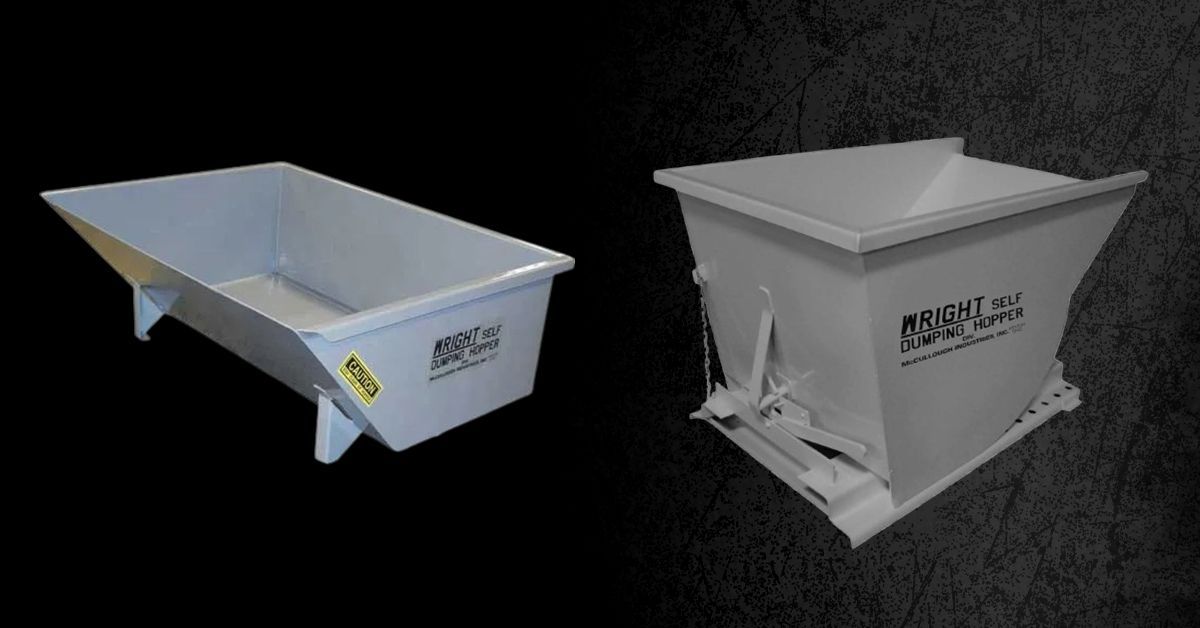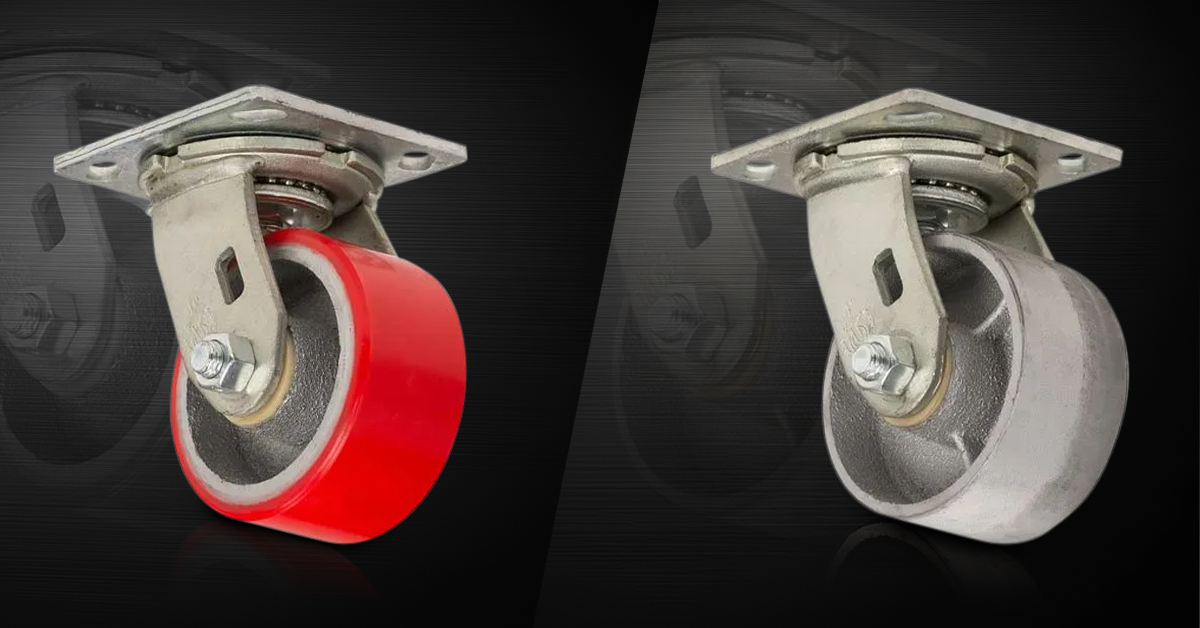Why Floor Protection Matters in Industrial Settings Industrial facilities face constant wear from heavy machinery, equipment traffic, and waste disposal processes. But one often overlooked culprit of long-term damage is leakage from poorly sealed hoppers. Oil, coolant, and wet metal debris can seep out of containers and degrade concrete surfaces, create slip hazards, and increase compliance risks.
McCullough Industries designs every
Wright® Self-Dumping Hopper with protection in mind. From reinforced welds to optional drip trays and sealing accessories, leakproof engineering is essential in modern material handling. In this blog, we explore how better hopper design can help industrial operations prevent costly floor damage and ensure a cleaner, safer workplace.
What Causes Floor Damage from Dumping Hoppers?
Even the best facility floors will degrade over time if exposed to:
- Oils and coolants: Common in chip collection and machining scrap
- Metal fines and abrasive shavings: These can grind into sealed flooring
- Water or slurry: Adds weight, corrosion, and soak-through risk
When standard hoppers have open seams, rusted bases, or gaps around the dump mechanism, these materials escape. Over time, you’ll see:
- Discoloration and etching on polished concrete
- Expansion cracks due to trapped moisture
- Corrosion around anchor points and foot traffic zones
That’s where
leak-resistant hopper design makes a difference.
Leakproof Hopper Design Features That Matter
McCullough’s Wright® line includes several core design features specifically aimed at
preventing leaks and containing hazardous byproducts:
| Feature | Benefit |
|---|---|
| Continuous seam welds | Prevents fluid seepage from corners and joints |
| Optional drain plugs | Lets operators control fluid release safely |
| Gasketed lids and edges | Stops splash and aerosol leaks during transport |
| Powder-coated or galvanized finish | Resists corrosion that could lead to pinholes |
| Drip trays and oil pans | Captures overflow before it reaches the floor |
These aren’t luxury add-ons, they’re industrial necessities in high-use machining, fabrication, or oil-handling environments.
When to Choose a Leakproof Hopper
Leakproof hoppers are ideal when handling:
- Metal chips and turnings soaked in coolant
- Oil-covered scrap from machining centers
- Mixed wet and dry waste from assembly lines
- Powdered materials that can become slurry when mixed with condensation
If your facility uses
CNC equipment, wash stations, plasma cutters, or
wet grinding, investing in leak prevention is essential for both floor longevity and operator safety.
How Wright® Hoppers Are Built for Leak Control
Every Wright® Self-Dumping Hopper is engineered to take abuse but select models are purpose-built for fluid control. Here are a few standout designs:
Chip Handling Hoppers
- Fully seam-welded interior
- Drip tray integration
- Gasketed lid option
GEN II Hoppers
- Suitable for mixed wet/dry industrial waste
- Reinforced base to resist corrosion from fluids
Custom Hopper Builds
- Add expanded oil containment
- Sloped floors for easy fluid drainage
- Stainless options for caustic fluid compatibility
If you’re seeing signs of rust on your floor or slip hazards from coolant leaks, it’s time to spec a hopper that’s actually designed to handle your material stream.
Cost of Floor Damage vs. Cost of Leakproof Equipment
Repairing concrete isn’t cheap. A typical industrial floor resurfacing project runs $4–8 per square foot. Add in downtime, contractor scheduling, and permit inspections, and you’re quickly looking at five figures or more.
A Wright® leak-resistant hopper, on the other hand, is a one-time investment designed to prevent damage before it starts. Over a 5-year span, it easily pays for itself through:
- Reduced facility maintenance
- Lower OSHA safety risks
- Fewer fines or environmental cleanups
- Less unplanned downtime due to spills
Best Practices for Leakproof Hopper Use .
Even the best hopper needs proper use and maintenance. Here are tips to maximize your investment:
- Check weld seams monthly for signs of wear or fluid seepage.
- Empty and rinse drip trays regularly to avoid overflow.
- Train operators on proper dumping angles to prevent splash.
- Use compatible fluids that don’t degrade hopper coatings.
- Replace gaskets or plugs if they show signs of swelling or cracking.
FAQs: Leakproof Hoppers and Floor Safety
Are all Wright® Hoppers leakproof by default
All are seam-welded for durability, but certain models offer additional leak control features like trays, gaskets, or fluid-specific design enhancements.
Can I retrofit an existing hopper to be more leak resistant?
In some cases, yes. Drip pans, plugs, and lids can be added. But for full containment, a purpose-built chip or oil-handling hopper is recommended.
How often should I inspect hoppers for leaks?
We suggest visual checks weekly, with detailed inspections monthly, especially in high-fluid environments.
Does fluid leakage affect OSHA compliance?
Absolutely. Pooled liquids can create slip hazards, which are among the top OSHA citations. Proper containment is a safety requirement.
Is a stainless steel hopper better for leak control?
Not always. Stainless is corrosion-resistant, but the weld quality and design features (like gaskets) matter more for actual leakproof performance.
Protect Your Facility the Smart Way Don’t wait until your facility floor is stained or cracked from leaks. Leakproof hopper designs are a smart, proactive investment that protect your assets and your team. Whether you're collecting CNC chips or wet recyclables, McCullough Industries has a Wright® hopper solution built for your workflow.
Let’s build yours. Reach out today to spec a leak-resistant model designed to meet your material demands and protect your workspace for the long haul.

